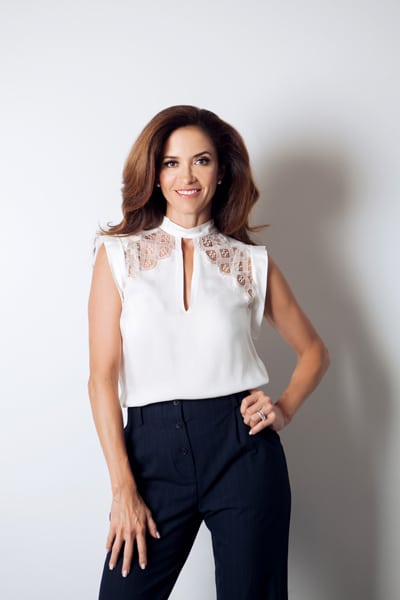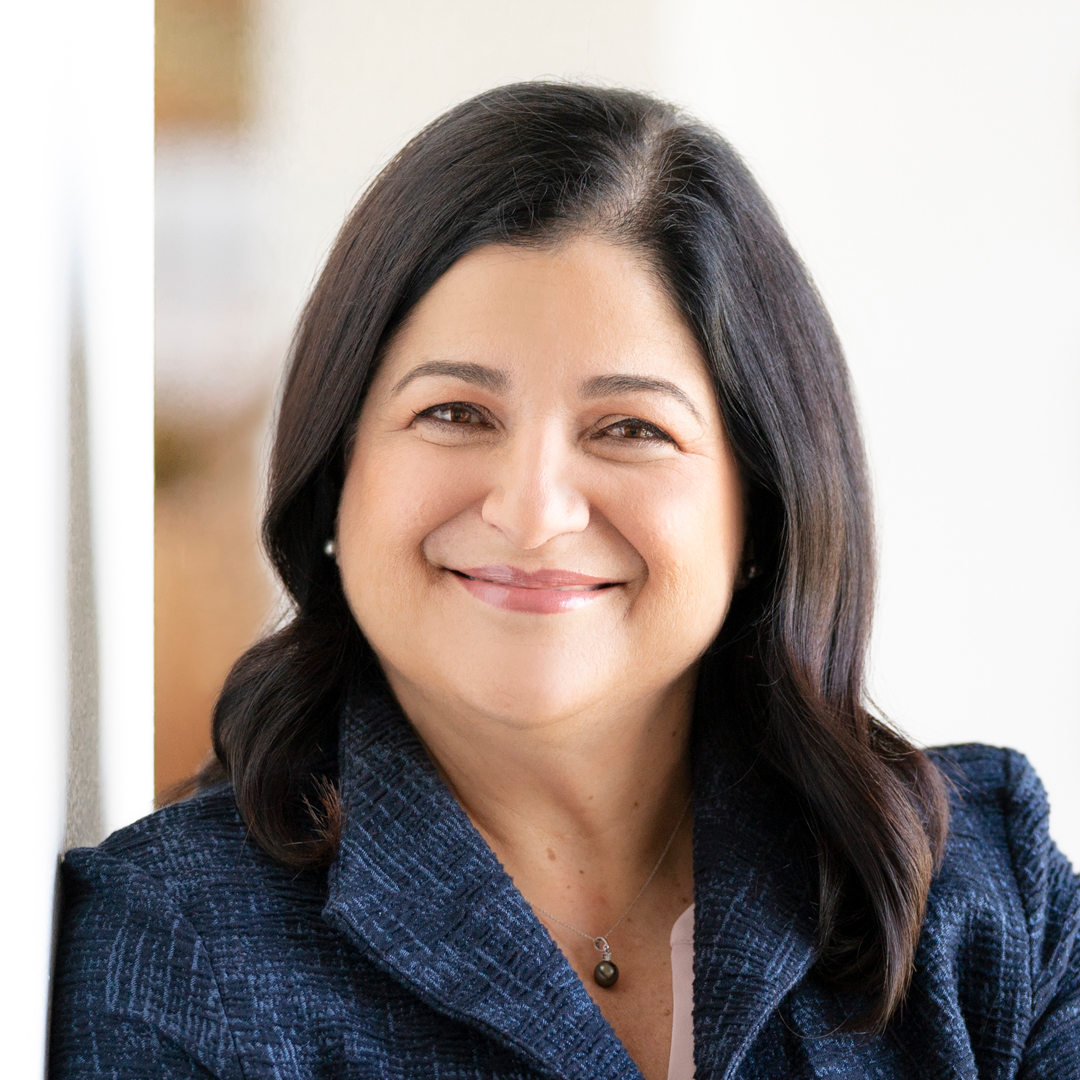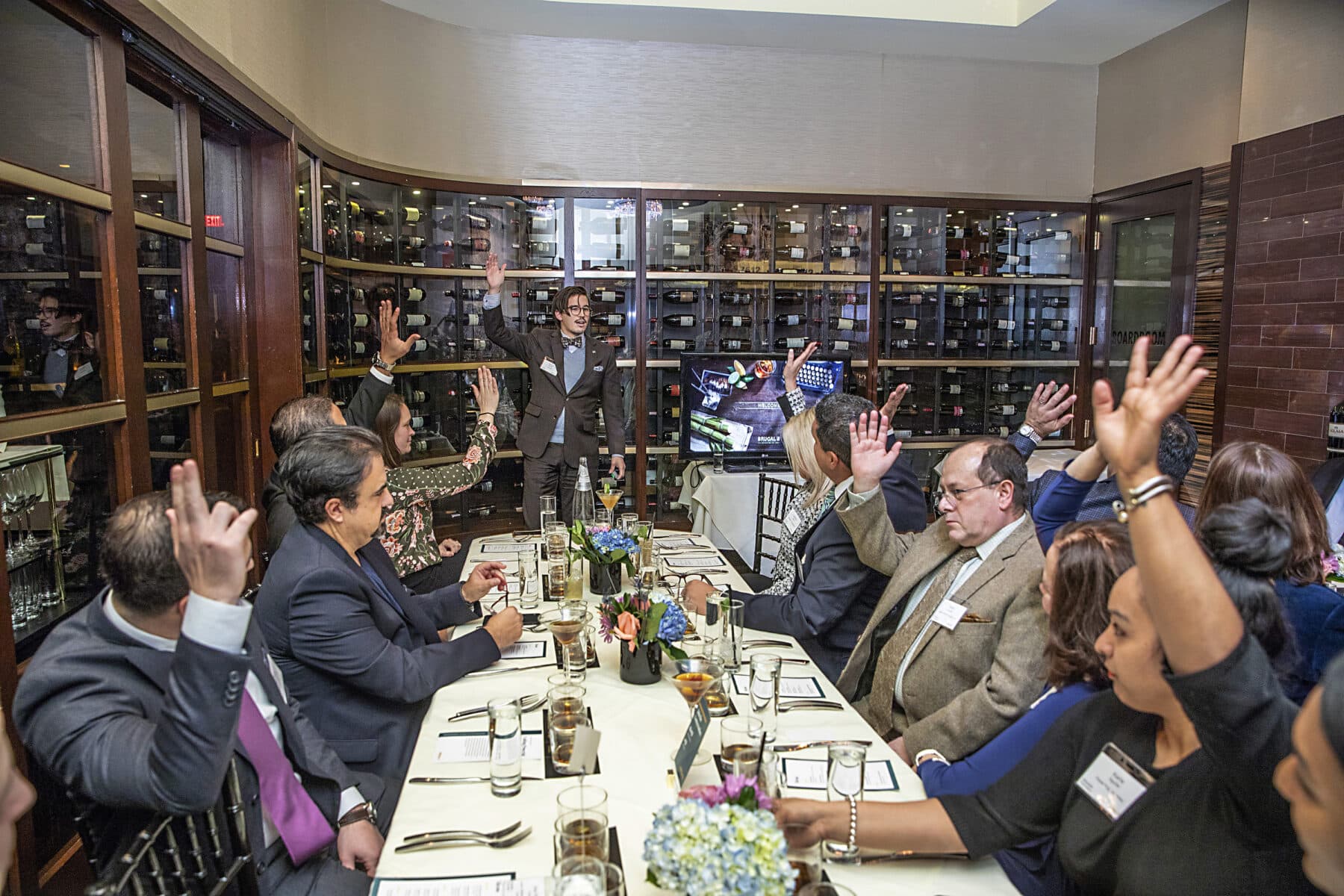|
Getting your Trinity Audio player ready...
|
“I have been working in the humanitarian, social-impact world for the last twenty years. I’ve had the privilege of working at the UN refugee agency, for UNICEF, for the UN’s secretary general, and the World Economic Forum. I’ve been working on global and humanitarian affairs for most of my life.
Despite the negative news we’re bombarded with these days, I truly believe that the world is getting better. The world is making progress. For girls, there is no better time to be born in human history than today. There’s no better time for women—and men—to have the opportunity for healthcare, education, avoiding poverty, the right to vote, access to electricity, etc. While there is still much to do, the progress that has been made should not be diminished. I am an optimist because I know that it’s possible to have a better world and a prosperous future for all.
My biggest fear comes from the growth of divisive language. It’s everywhere and it’s creating a sense of division that could negatively impact the progress the world has made to date.
Reflecting on the initiatives that I have been involved in and the progress that I have seen, I was inspired to act against the growing divisiveness, working to remind everyone of our shared humanity.
In my career, I’ve worked to fight diseases, such as AIDS, that appeared to move faster than science. But this divisiveness we’re experiencing—this is not a science, this is not a virus, this is us. We have to flex that muscle to see people as people and not see them as a Democrat or a Republican, as rich or poor, Caucasian or Hispanic. We just have to see each other as humans and allow each other the right to have a dream, to have equal access, inputs, and outcomes. That vision is at the heart of the We Are All Human Foundation, which we founded in 2017. People are more the same than they are different, and those differences should be celebrated rather than discouraged: Every human to value every human.

Five years ago, I moved to America and, for the first time in my life, I observed what I like to call a ‘reverse marketing’ situation involving US Hispanics. In the work that I’ve done over the years, I was usually trying to elevate the awareness of a negative product or issue—like poverty—and worked to position it properly in order to engage consumers. In the case for US Hispanics, the opportunity is amazing, and yet still largely unknown. Hispanics make up more than 18 percent of the US population, 12 percent of the annual US GDP, and have annual consumer purchasing power of $1.5 trillion. For these reasons and many more, Hispanics represent the largest opportunity for growth of the US economy. However, when examining the ‘packaging’ of this opportunity, the misrepresentations and underrepresentation of this community tells a different story. For the first time in my life, I see the ‘packaging,’ so to speak, as being far worse than the ‘product.’ And not only is the packaging affecting the perception of non-Hispanics, but it is negatively impacting the confidence and growth of Hispanics themselves.
The question is: Why? Why are the numbers and potential so powerful, but the reality of its appreciation so weak? Our foundation conducted the Hispanic Sentiment Study and partnered with a number of Hispanic organizations to find the answer. It came down to two main issues: The Hispanic community is unaware of the strength of its own story, and the Hispanic community does not represent its interests as one unified community.
When we shared basic facts about the power of the US Hispanic market to participants in our study, 77 percent were surprised by the statistics. They were surprised to hear the numbers that give dimension to our community’s size. They were surprised that Latinos create small businesses faster than anyone else, that we contribute 12 percent of the US GDP—all of these things Hispanics should be proud of, but of which many have no idea. Hispanics do not know their own power.
My goal is to reduce that lack of awareness from 77 percent to 30 percent in 2019, and down to 15 percent in 2020. When you know that you’re strong, you exercise your voice. This is our time. There is no better time. Hispanics have never been stronger. However, we’ve also never faced so many political pressures. This community needs to be united and it needs to unite now.
“This is our time. There is no better time. Hispanics have never been stronger. However, we’ve also never faced so many political pressures. This community needs to be united and it needs to unite now.”
When I worked in the public health sector on AIDS and HIV, we faced incredible donor fatigue. There already had been thirty years of fighting the pandemic, and donors were saying, ‘That’s enough. When are we going to finish with this?’
The trouble was there was a very fragmented approach to dealing with the virus, and it continued to kill people every day. Religious leaders were focused on opposing the distribution of condoms. The NGOs were lobbying to pass legislation. Everyone was doing their own thing. The Hispanic community is great, but it’s fragmented, like that approach to HIV was. Everybody is doing their own thing.
To combat HIV, we had to unify religious leaders, NGOs, pharma, and the government. We had to get the big picture, get them to focus on the question: ‘How are we going to stop this virus from killing our people?’ It took some time, but we finally got all stakeholders working together, using their voices towards the common mission, and we ultimately saw success combating the disease.
Once you have clarity around your goals and collaboration within your community, your voice can be heard and change can be made. I’ve seen it. I’ve done it. It happens. It is possible.
“Once you have clarity around your goals and collaboration within your community, your voice can be heard and change can be made.”
At the Hispanic Leadership Summit in December, we defined a shared agenda, which we called ‘Vision 2020.’ It has three key priorities: access to education, financial empowerment, and improving the image of Hispanics. For the next two years, if everyone is working on these three things, the Hispanics community will be in better shape. We’ll change our future, our destiny, because we’ll be able to elevate our community.
We have until the next election in 2020 to make sure that we’re not invisible, but visible; that we’re not voiceless, but we have a voice.
The jump between feeling Hispanic and acting as a Hispanic community is not that large. It is a jump that requires focus and discipline and rigor just like any other campaign. My intention is to use one to two years to make that transformation.
We Are All Human is a mechanism for activating these efforts and the efforts of the Hispanic community, working with companies and organizations, and using tactics such as storytelling and advocacy efforts. We want our foundation to be a vehicle to move the hearts and minds of people, to shift their opinion, their mind-set, and their behavior. Each foundation initiative has a lens of opportunity and empowerment for everyone, with ‘We are all human’ as the underlying narrative.
We are all human, therefore we deserve the same salaries (Hispanics are the lowest-paid demographic). We are all human, therefore we deserve to have an opportunity to be recognized and valued for our contributions to society. With the foundation, we represent these ideals publicly while uniting our community at events like the Hispanic Leadership Summit.
“We are all human, therefore we deserve the same salaries. We are all human, therefore we deserve to have an opportunity to be recognized and valued for our contributions to society.”
My message for Hispanic Executive readers is this: Be a role model for the Hispanic community, show them their beauty as professionals, as leaders, as innovators, as dreamers. Show the Hispanic community by lifting a mirror, saying, ‘Look at us, we’re powerful.’ And do this with the goal of helping the community unify as one. Let’s be one. We may be Mexican, Colombian, Cuban, Venezuelan, but we can also act as one unified Hispanic community.
So my desire for 2020 is: Let’s be one. Let’s have our voices heard.”

